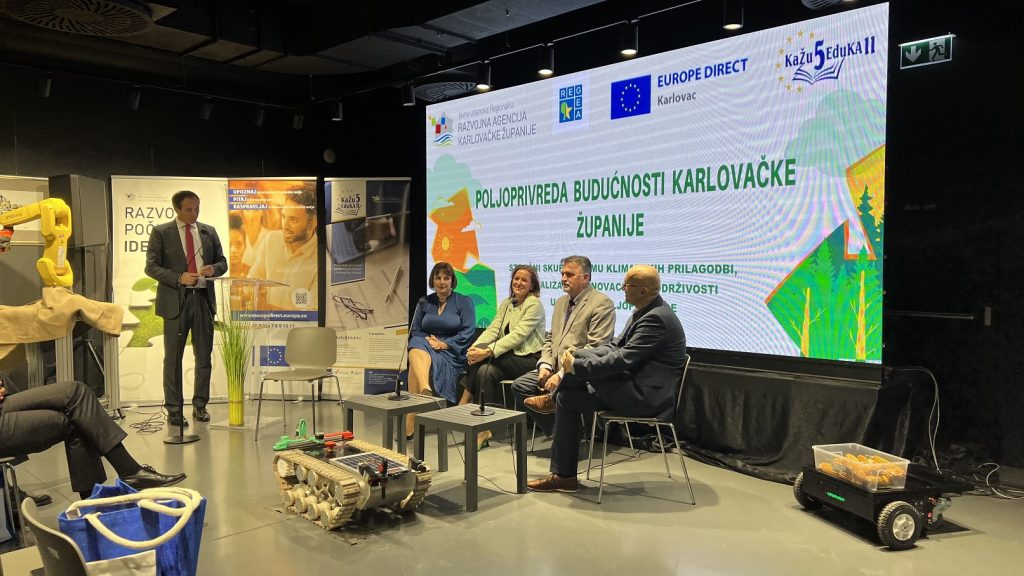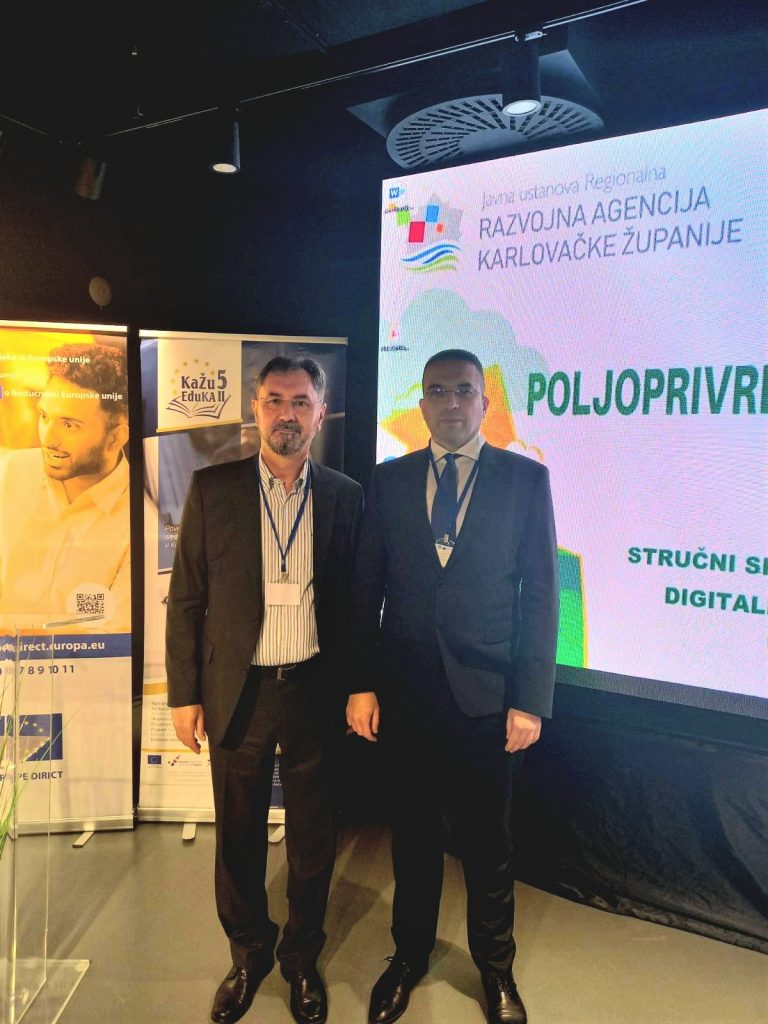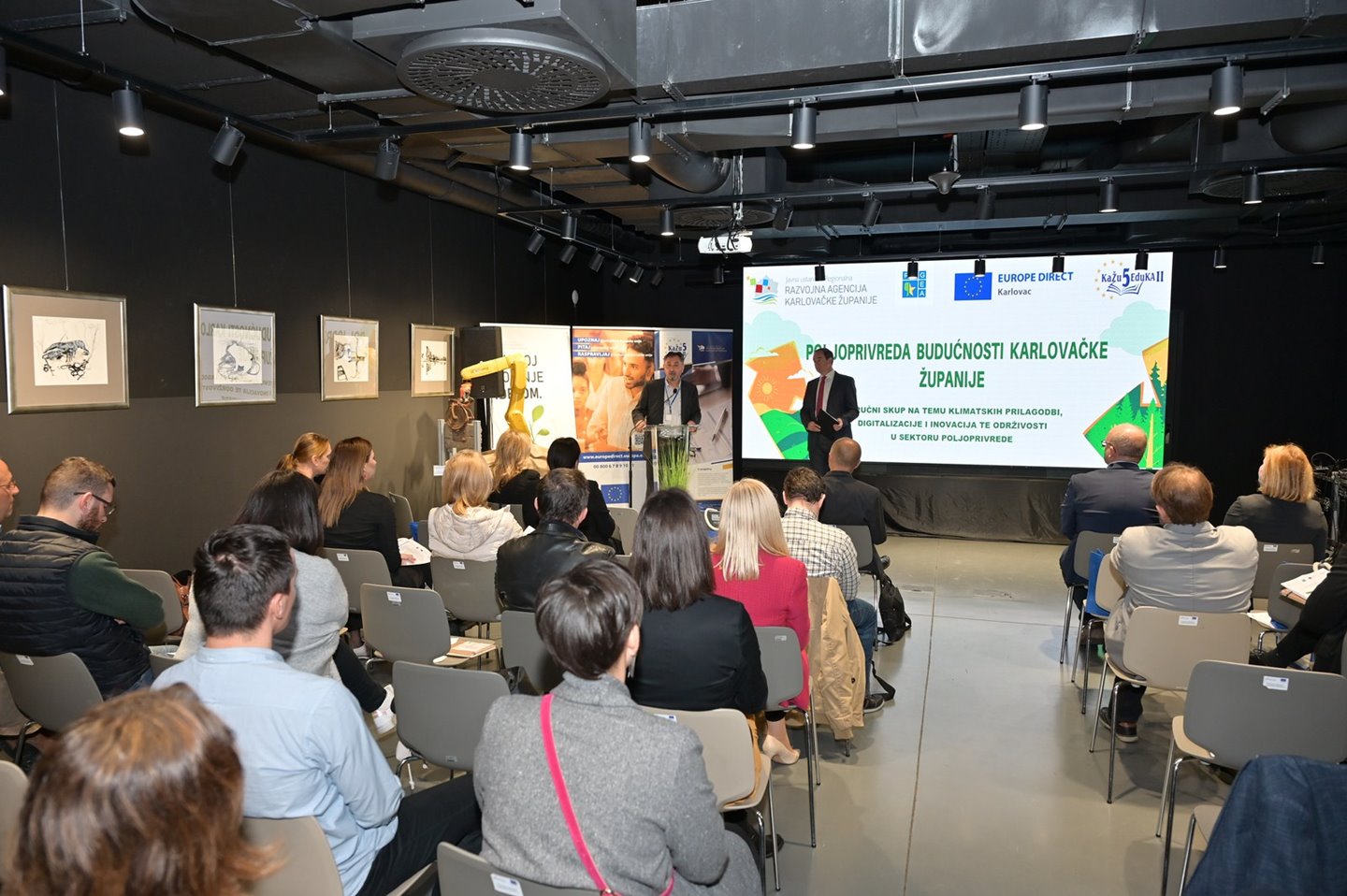An expert meeting called " Poljoprivreda budućnosti Karlovačke županije", organized by the Public Institution Regional Development Agency of Karlovac County and Europe Direct Karlovac, in cooperation with Regional Energy Agency of Northwest Croatia (REGEA), was held on November 4, 2022 in the congress hall of Public Institution Aquatika in Karlovac.
Bringing together eminent experts in the field of agriculture, the agriculture of Karlovac County was looked at from several different aspects. In addition to providing an insight into the current state of agriculture in our county, possible directions for future development were also presented, along with available modern technological solutions that are already successfully applied in the world, as well as those that are currently in the development phase and should be counted on in the future.
After welcoming speeches were given by the organizers and collaborators, Mr. Tomislav Sokol, Member of the European Parliament, presented the EU’s concept of developing rural areas through the development of smart communities. The mentioned concept is already being applied and giving results in the more developed countries of the European Union.
The agriculture development plan of the Republic of Croatia in the new programming period was presented on behalf of the Ministry of Agriculture by Mr. Ivan Ciprijan, head of the service for local community development in the Sector for Implementation of Rural Development Measures, while Mrs. Branka Šeketa Karlović, gave an insight into the current state of agriculture in our county.
Professors Ante Galić, Dubravko Filipović, Stjepan Pliestić and Vladimir Poljančić from the Faculty of Agriculture in Zagreb gave interesting presentations about new technological solutions and the future of their application in agriculture. For the first time, in public was shown a prototype of the autonomous robot cRobot for recognition and ecological treating weeds.
Professor Marijana Blažić from Karlovac University of Applied Sciences spoke about connecting the industrial transition with the agricultural production organization and presented several projects in preparation related to the local distribution center, reception and processing of milk, abattoir and meat processing.
The second part of the expert meeting was dedicated to the climate impact and digitization of the agricultural sector. The impact of climate change on the agricultural sector was discussed by Mr. Miljenko Sedlar, assistant director of REGEA, while prof. Božidar Benko from the Faculty of Agriculture in Zagreb presented concrete solutions and equipment for reducing the impact of climate change in protected areas.
Professor Nikola Bilandžija from the Faculty of Agriculture in Zagreb referred to renewable energy sources and the possibilities of collecting and using agricultural biomass as a contribution to green strategies and the concept of smart rural communities.
As an example of smart and sustainable solutions with the application of a communication platform, the pilot project of the Zagreb County called "Smart Agriculture" was presented by Mr. Tomislav Marić, director of the sales department from Odašiljači i veze d.o.o.
At the end of the event, a panel discussion entitled "Holistic approach to the development of smart and resilient rural communities" was held, in which professors Marijana Blažić and Stjepan Pliestić, Mr. Tomislav Marić and, as a representative of local family farm, Mrs. Snježana Kovač from OPG Kovač, first handedly presented to the gathered a realistic path from an entrepreneurial idea to a successful businessman, which nicely rounded off and put into context the entire topic of the held professional meeting.
The event was sovereignly and expertly moderated by Mr. Vlatko Grgurić, presenter and editor of the well-known agricultural show "Plodovi zemlje".





